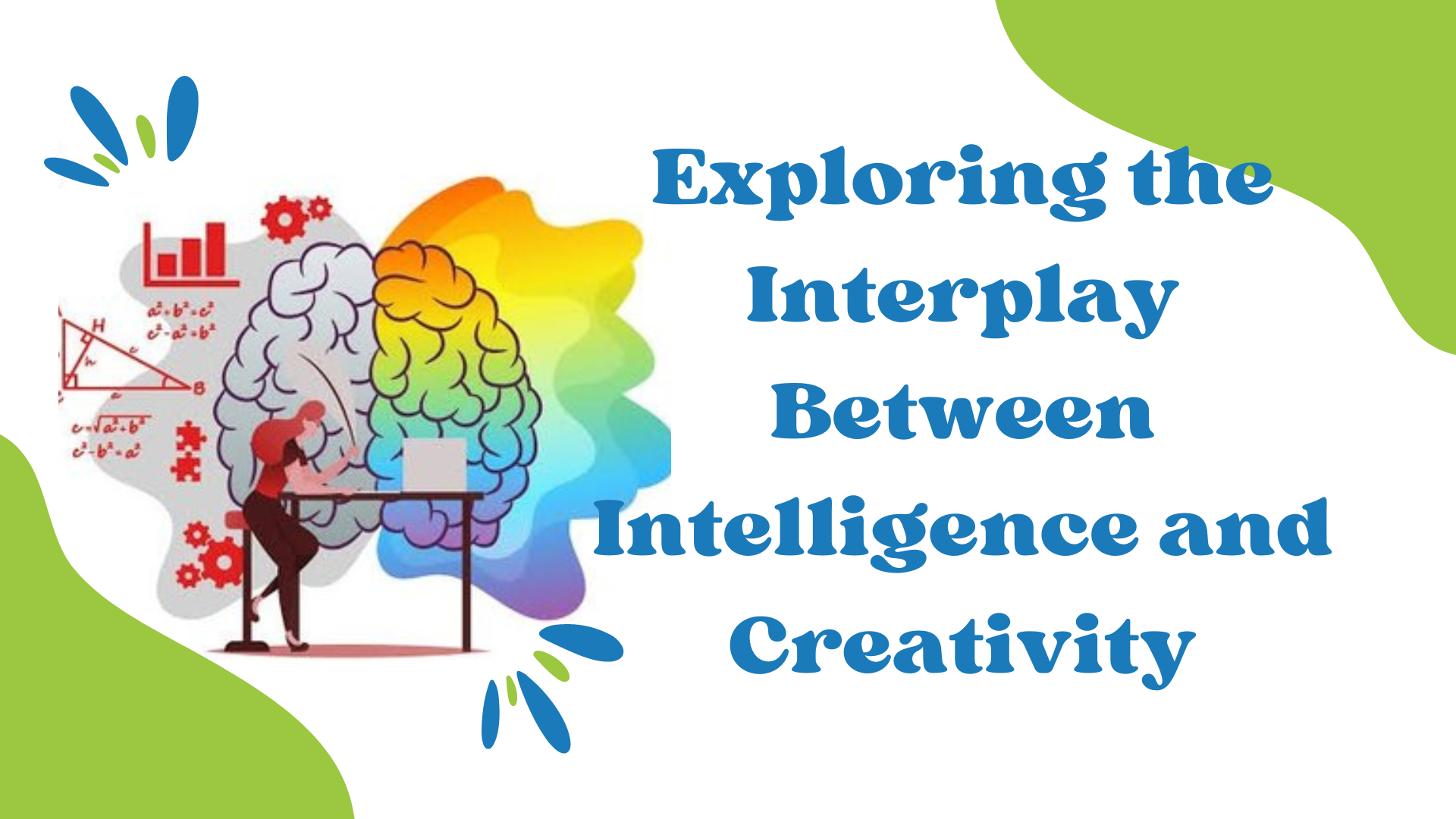
Introduction
The relationship between intelligence and creativity has long intrigued researchers, philosophers, and thinkers alike. Are intelligence and creativity two distinct faculties, or do they share a deeper connection? The debate has raged on for years, with varying perspectives on the matter. Some argue that intelligence and creativity are essentially the same, while others contend that they represent separate cognitive domains. In this blog post, we’ll delve into the nuances of this debate, examining the similarities and differences between intelligence and creativity, and exploring the possibility that they might, in fact, be intertwined.
Defining Intelligence and Creativity
Before delving into the connection between intelligence and creativity, it’s essential to establish what these terms mean. Intelligence is often associated with cognitive abilities such as problem-solving, logical reasoning, memory, and learning. It involves the capacity to acquire knowledge and apply it effectively to various situations.
On the other hand, creativity is linked to the ability to generate novel and valuable ideas or solutions. Creative thinking often involves breaking away from conventional patterns and thinking outside the box. It encompasses areas such as art, music, literature, innovation, and lateral thinking.
Points of Convergence
While intelligence and creativity might seem distinct, there are several points of convergence that suggest a closer relationship between the two:
1. adaptive Problem-Solving: Both intelligence and creativity involve the ability to adapt to new situations and challenges. Intelligent individuals can quickly analyze and solve problems, while creative individuals adapt their thinking to generate novel solutions.
2. Flexible Thinking: Both traits require flexible thinking. Intelligent people can consider multiple perspectives and approaches, while creative individuals can explore unconventional ideas and viewpoints.
3. Complexity Handling: Intelligence often involves dealing with intricate concepts and information. Creative thinking aids in simplifying complex concepts for better understanding and communication.
4. Learning and Innovation: Intelligence is closely linked to learning and acquiring new knowledge. Creativity goes hand in hand with innovation, as generating fresh ideas often leads to novel solutions and advancements.
5. Pattern Recognition: Both intelligence and creativity rely on recognizing patterns. Intelligent individuals identify patterns in data, while creative minds identify new patterns that lead to innovative insights.
6. Critical Thinking: Both intelligence and creativity require critical thinking. Intelligence involves evaluating information logically, while creativity involves critically assessing ideas and refining them.
7. Effective Communication: Intelligence enables clear and effective communication of ideas. Creativity enhances communication by finding imaginative ways to convey complex concepts in simpler terms.
The Divergence Argument
Despite the similarities, proponents of the divergence argument maintain that intelligence and creativity are fundamentally distinct:
1. Originality vs. Conformity: Creativity often involves breaking away from established norms and generating original ideas. In contrast, intelligence may lean towards conforming to existing rules and established logical frameworks.
2. Domain-Specificity: Creative individuals might excel in specific domains, such as art or music, while not necessarily displaying the same level of creativity in other areas. Intelligence, on the other hand, tends to be more universally applicable across different subjects.
3. Risk and Uncertainty: Creativity often involves embracing uncertainty and taking risks by exploring uncharted territories. Intelligence may prioritize minimizing risks and focusing on proven strategies.
4. Emotion and Imagination: Creativity often taps into emotions and imagination to create novel concepts. Intelligence might rely more heavily on rationality and logical thinking.
5. Breaking Constraints: Creative thinking involves challenging and breaking mental constraints to generate innovative ideas. Intelligence, although it can involve problem-solving, may not always push the boundaries of conventional thought.
6. Subjectivity and Objectivity: Creativity often embraces subjectivity and personal expression, whereas intelligence tends to lean towards objective analysis and logical reasoning.
7. Expression vs. Processing: Creativity often emphasizes expression and output, such as creating art or music. Intelligence might focus more on information processing and cognitive tasks without the same emphasis on external expression.
A Unified Perspective
Amidst the debate surrounding whether intelligence and creativity are synonymous or distinct, emerges a viewpoint that seeks to bridge the gap between these two faculties. This unified perspective acknowledges both the similarities and differences, recognizing the intricate interplay between intelligence and creativity.
Rather than viewing intelligence and creativity as opposing forces, this perspective suggests that they are complementary aspects of human cognition. Intelligence provides the foundation for understanding complex concepts, analyzing information, and grasping new ideas. On the other hand, creativity infuses the process with innovation, originality, and the ability to generate novel solutions to problems.
Conclusion
The debate over whether intelligence and creativity are the same or different may never yield a definitive answer, as human cognition is too intricate to be encapsulated in a single theory. What we can conclude is that intelligence and creativity share undeniable connections, as they both involve cognitive processes that contribute to human advancement and understanding. Instead of viewing them as separate entities, it’s more fruitful to understand them as two sides of the same coin, working in harmony to shape the intricate tapestry of human thought and expression.